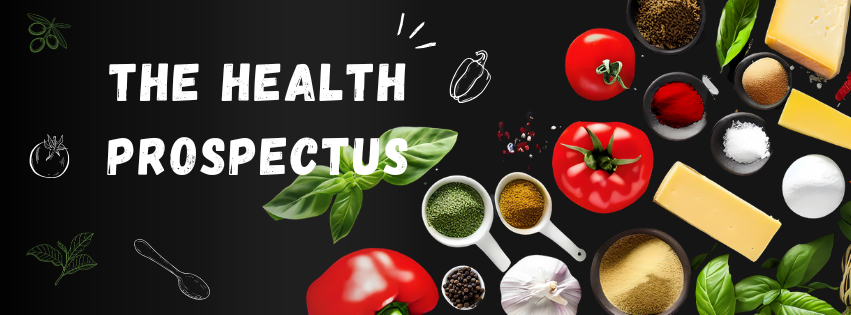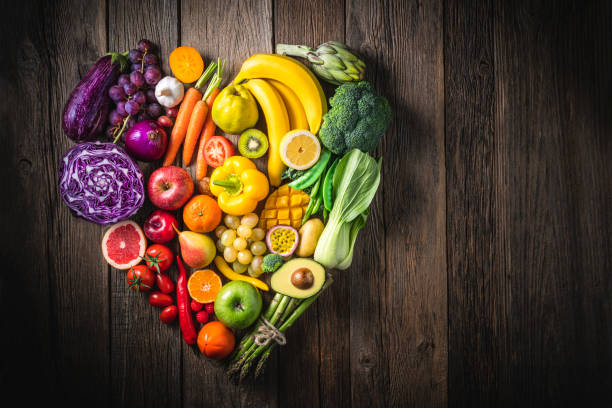Welcome to The Health Prospectus
The Health Prospectus will provide you with useful tips to improve and sustain a healthy lifestyle.

The Health Prospectus Blog


As people age, their nutritional needs can change, and consuming a variety of fruits can help meet these needs. Here are ten fruits that are particularly beneficial for people over 40, due to their nutrient profiles:
1. **Berries (Blueberries, Strawberries, Raspberries, Blackberries)**: Rich in antioxidants, which can help combat inflammation and oxidative stress, and high in fibre, which supports digestive health.
2. **Apples**: High in fibre and vitamin C, and they contain antioxidants that may support heart health.
3. **Oranges**: Excellent source of vitamin C, which is important for immune function, and also provide fibre and potassium.
4. **Bananas**: High in potassium, important for heart health and maintaining healthy blood pressure levels, and a good source of vitamin B6.
5. **Cherries**: Contain antioxidants and anti-inflammatory compounds that may help reduce the risk of chronic diseases and improve sleep quality.
6. **Pomegranates**: Rich in antioxidants, particularly punicalagins, which have been linked to heart health benefits.
7. **Grapes**: Contain resveratrol and other antioxidants that may contribute to heart health and reduce inflammation.
8. **Kiwifruit**: High in vitamin C and fibre, and they have been linked to improved digestive health.
9. **Pears**: Good source of fibre and vitamin C, and they may support heart health and weight management.
10. **Papayas**: Rich in vitamin C, vitamin A, and folate, and contain digestive enzymes that can aid in digestion.
Including these fruits as part of a balanced diet can help provide essential nutrients and antioxidants that may support overall health and well-being as you age.
Eating a balanced diet rich in vegetables is important at any age, but for those over 40, certain vegetables can be particularly beneficial due to their nutrient profiles. Here are some top vegetables to consider:
1. **Leafy Greens**: Vegetables like spinach, kale, and Swiss chard are high in vitamins A, C, E, and K, as well as several B vitamins. They are also rich in fibre, which is important for digestive health and can help lower cholesterol levels.
2. **Broccoli**: This cruciferous vegetable is high in fibre and vitamins C and K. It's also a good source of antioxidants and may help support heart health.
3. **Carrots**: High in beta-carotene, which the body converts into vitamin A, carrots are good for eye health. They also contain fibre and antioxidants.
4. **Tomatoes**: Rich in lycopene, an antioxidant linked to reduced risk of heart disease and cancer, tomatoes also provide vitamins C and K, as well as potassium.
5. **Bell Peppers**: These are high in vitamins A and C and are a great source of antioxidants. They can also add colour and variety to your meals.
6. **Brussels Sprouts**: Like other cruciferous vegetables, Brussels sprouts are high in fibre, vitamins, and antioxidants, and may help reduce inflammation.
7. **Sweet Potatoes**: These are rich in beta-carotene, vitamin C, potassium, and fibre. They have a lower glycemic index than regular potatoes, making them a better option for blood sugar control.
8. **Beets**: High in nitrates, beets can help improve blood flow and lower blood pressure. They also contain fibre, folate, and vitamin C.
9. **Asparagus**: This vegetable is a good source of folate, vitamins A, C, and K, and fibre. It also contains antioxidants and can support digestive health.
10. **Cauliflower**: Another cruciferous vegetable, cauliflower is versatile and can be used as a low-carb substitute for grains. It is high in fibre, vitamins C and K, and antioxidants.
Incorporating a variety of these vegetables into your diet can help ensure you get a wide range of nutrients that are beneficial for maintaining health after 40. Remember to combine them with other healthy lifestyle choices, such as regular exercise and adequate hydration, for optimal health benefits.